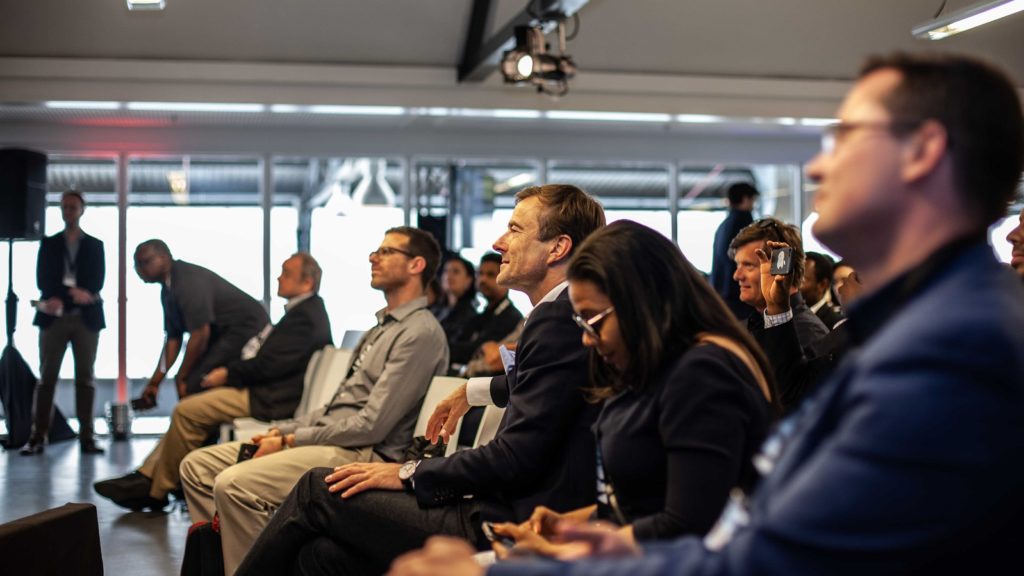AI is disrupting education. But despite what the headlines (and some ChatGPT horror stories) might suggest, South African teachers aren’t being replaced — they’re…
Why it’s time we outlawed paying to speak at tech conferences [Opinion]

There is a reason that publishers, as well as content platforms like Facebook, Instagram and Twitter have been compelled to clearly mark which content is advertising and which isn’t.
And although the reason will be obvious to many reading this, for those that it isn’t, let me summarise: there is always an agenda and it’s not always benign.
It’s a hotly debated topic too. Coming from the media space, I have seen it first hand. There is a constant battle between editorial integrity and a desire to keep the lights on. For the good publishers, editorial integrity always won – but that didn’t necessarily mean they survived.
A publisher had to produce seriously good content, and have remarkably clear and clever ways of advertising to their readers, if it were to survive. If its advertising was too abrasive, it lost the trust of its audience; too subtle and it lost the much-needed advertising budgets.
Undisclosed pay to say speaking slots at conferences are a conflict of interest, no matter how unbiased the content seems
When native advertising came around, it promised to be the silver bullet to the “great content” versus “paying staff” dilemma.
Suddenly, publishers could produce great content, and get paid for it. But peace in the promised land didn’t last long; brands took advantage of the rapport that the publishers had built with their communities, and publishers got addicted to paying the bills on time.
And the audience didn’t like it one bit.
People want to know who has produced the content they’re reading and why. They want to know that they can trust it; that the producer is credible. But even if they don’t, it comes down to basic ethical conduct.
Publishers have a responsiblity and an obligation to tell people what is advertising and what isn’t. Otherwise it’s just a poster short of propaganda.
So, laws were made. In the UK, for example, according to the Marketing and Advertising Law, non-broadcast media are directed to the Code of Non-broadcast Advertising and Direct and Promotional Marketing where, in uncharacteristically clear terms, it states “2.1. Marketing communications must be obviously identifiable as such”.
Selling speaking slots
So why then are conferences different?
Well they weren’t, once upon a time. A little more than a decade ago, selling speaking slots was frowned upon, even campaigned against. Content managers generally had experience in journalism or editorial and knew what a conflict of interest was.
Now, however, it seems to be the norm. In fact, there are even articles (see this one) convincing organisers that it’s okay to sell speaking slots (author’s note: this article was from 2011, but clearly shows the beginning of trend).
Now I am not suggesting that those that organically speak at conferences aren’t out to gain some kind of exposure for their personal or corporate brands – we all know that no matter how strong the cause, there is usually a little of that wrapped up in the message – but rather that if we reduce conferences to pay-to-say events, the presentations are no longer about the content so much as who can afford to present it.
Time-share seminars
We have all been to conferences that feel more like a time-share seminars than educational forums – which, by the way, is what they’re meant to be – and we all know how much it cheapens the entire affair. But what we don’t know is which presentations are organic crap and which are premium crap.
And we deserve to know which is which. I don’t want to fork out an exorbitant amount of money to be advertised to — I can do that for free on YouTube – rather, I want to know who has paid to cleverly weave their product or service into a “value-adding” talk.
I want to know if I can trust the information that they are propagating. And I want to know which of the speakers got there based solely on what they had to say.
Now I am not saying that sponsors will always shamelessly plug their own products or services given a chance to speak, or that, just because they paid to share their content, it won’t be great. Nor am I saying that sponsors shouldn’t get an opportunity to speak.
But I am saying that undisclosed pay to say speaking slots are a conflict of interest… no matter how unbiased the content seems, that conferences that market themselves as educational forums should not be exclusively made up of sponsored presentations, and that there should be transparency like there is in most other media. Because at the moment there isn’t, and it’s wrong.
Kyle Hauptfleisch is employee number one, and heads up business development, at BVNK, a UK-based core banking software provider for new finance. He was previously a founding partner of a boutique marketing agency and served as CMO until it was acquired in 2016.
Featured image: Audience members listen to speakers present at one of the many Cape Town tech conferences held last year. (Supplied)


